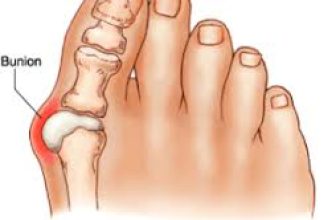Family dental Little Rock is a term that is often used to describe a wide range of dental treatments and procedures that are available for a family. These treatment services are aimed at preventing or treating tooth decay, gum disease and other problems with the teeth. Some of the most common areas of treatment include cavity repair, the restoration of tooth structure and treating gum disease.
Preventing tooth decay
The best way to prevent tooth decay is to have good dental care. This includes brushing and flossing twice a day. It also involves avoiding acidic beverages. If your teeth are prone to decay, you may wish to use fluoride toothpaste.
For instance, if you are going to have some sugary candy, you should brush and rinse your mouth immediately. Also, it may be wise to drink lots of water to keep your saliva level up.
Brushing your teeth is the first step in preventing tooth decay. Brush your teeth after each meal and floss at least once a day. You should also make sure you get regular professional cleanings.
You can also fight off tooth decay by eating crunchy, fibrous foods. These can scrub away plaque from your teeth and protect your gums. In addition, you should also limit your intake of sticky candies.
Aside from flossing and brushing, you should avoid chewing tobacco. Although it may be tempting to keep a roll of cigarettes in your purse, the nicotine is harmful to your gums and teeth.
Treating cavities
Cavities are a common health problem worldwide. They can cause toothache and even a tooth loss. However, they can also be prevented. The best way to prevent cavities is to practice good oral hygiene. This includes flossing and brushing regularly.
Cavities are caused by plaque. Plaque is the accumulation of bacteria in your mouth. In most cases, this plaque is harmless, but it can lead to small holes in your teeth.
When left untreated, the damage that plaque causes can become more complex. This can lead to larger holes and more serious problems, such as a root canal.
Cavities can be treated with dental fillings. These fillings can strengthen your tooth by replacing the material that has been damaged by the cavity.
Detecting and treating cavities early will save you money and time in the long run. It’s important to make an appointment with your family dentist if you notice one of these dreaded little holes in your teeth.
Treating gum disease
If you have any type of gum disease, you should seek treatment immediately. This is important because untreated gum disease can cause a number of serious health problems, including heart attack and stroke.
When you have a family dental Little Rock, he or she will check your teeth and gums to find out if you have any symptoms of gum disease. Your dentist can also tell you what treatments are available.
In the early stages of gum disease, you may notice that your gums are red and swollen. They might also bleed when you brush them. The doctor may recommend that you use an antibacterial rinse. You should also floss your teeth at least once a day.
As the infection progresses, your gums might pull away from your teeth. This is called periodontitis. Periodontitis can be very painful and can lead to tooth loss.
If you have more advanced gum disease, your dentist will probably perform oral surgery. During the procedure, he or she will remove plaque, bone, and gums that have been destroyed.
Restoring dental structure
The purpose of restoration dentistry is to repair the dental structure of a tooth. It can be done through a number of procedures. These include crowns, bridges, inlays, onlays, and fillings.
Dental restoration can be a great benefit to anyone. Damaged teeth can lead to functional issues and can even affect the bite. Restoring a tooth can also improve your smile. If you’re interested in learning more about restorative dentistry, contact a dentist today.
In general, restorative dentistry restores the health, integrity, and morphology of a tooth. Often, a restoration is needed after a tooth infection or accident. For example, if you have had a cavity or a root canal, your dentist may recommend a restoration.
Besides restoring the oral health of a patient, a dental restoration can also help a patient to speak and eat properly. Choosing the right dental restoration can minimize the need for additional treatment in the future.




